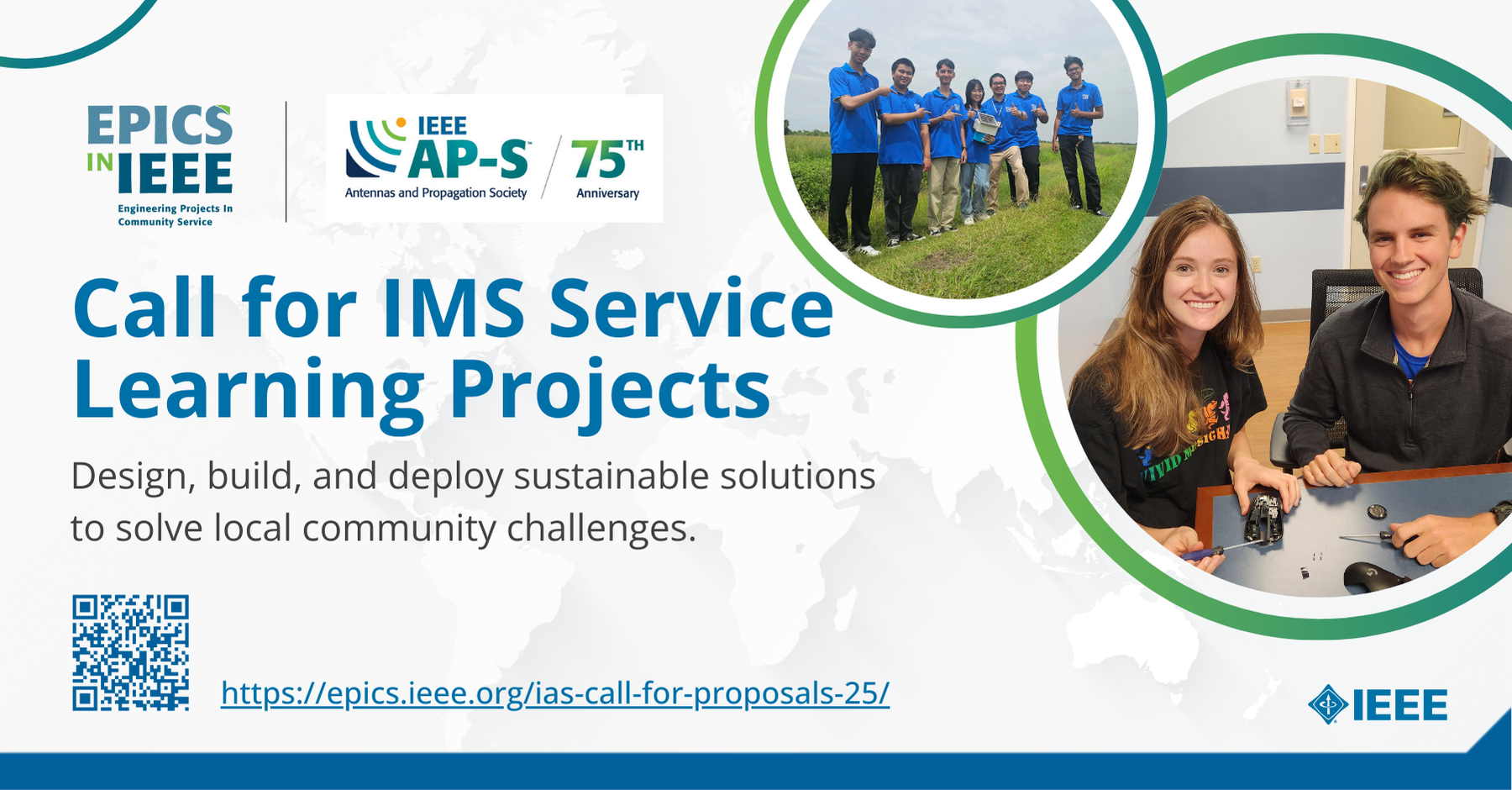IEEE AP-S Initiatives in Emerging Technologies: Applications in Humanitarian Engineering, Climate Change Mitigation, and Sustainable Energy Solutions
Panelists: Dr. Victor Lawrence, Dr. Jawad Siddiqui, Dr. Katherine August, and Dr. Ajay K. Poddar, IEEE Antennas and Propagation Society Chapter
Panel Title:
Abstract
The Humantrain Projects, supported by the IEEE North Jersey Section AP/MTT Chapter, IEEE AP-S SIGHT, and IEEE AP-S COPE, are initiatives to foster multidisciplinary technological innovation among students and early-career professionals. These projects provide financial support and structured mentorship to teams developing solutions that align with IEEE's mission of "advancing technology for humanity." Emphasis is placed on applications that incorporate state-of-the-art antenna and wireless technologies, including but not limited to artificial intelligence (AI), machine learning (ML), virtual reality (VR), and other emergent technologies. A particular focus is directed toward deploying high-speed wireless networks, critical for next-generation mobile communication systems. These systems aim to achieve enhanced data throughput, minimized latency, and robust connectivity.
Integral to the initiative is the exploration of terahertz signal generation and advanced signal processing techniques, which are essential for the scalability of Internet of Things (IoT) ecosystems. Antenna technologies are the foundational enabler for device-to-device connectivity across diverse applications, ranging from consumer smart devices to industrial automation systems. The projects integrate key elements such as electromagnetic propagation modeling, wireless communication protocols, radar systems, and remote sensing technologies. A rigorous understanding and optimization of these components are vital for evaluating antenna system performance across heterogeneous environments and use cases.
The overarching objective of the Humantrain Projects is to catalyze innovation in wireless communication and sensing systems through interdisciplinary collaboration among academia and industry stakeholders. Core goals include enhancing wireless networks' efficiency, reliability, and scalability to improve human communication, data exchange, and environmental interaction. These initiatives follow a collaborative research and development model to tackle humanitarian challenges through technology.
Interested IEEE AP-S Student Members and Faculty Advisors are encouraged to participate by forming project teams and submitting proposals via the designated Call for Proposals portal. All submitted projects must involve AP-S members, apply relevant antenna and propagation technologies, and address community-oriented challenges. Proposals should align with one of the four thematic pillars: Environment, Education and Outreach, Access and Abilities, or Human Services. Selected proposals will receive mentorship and financial support totaling up to USD 10,000.
Date and Time
Location
Hosts
Registration
-
 Add Event to Calendar
Add Event to Calendar
- Contact Event Hosts
-
Dr. Ajay Poddar (akpoddar@ieee.org) Dr. Anisha Apte (anisha_apte@ieee.org), Dr. Edip Niver (edip.niver@njit.edu)
- Co-sponsored by North Jersey Section, AP-S COPE and AP-S SIGHT
Speakers
Dr. Ajay K. Poddar
IEEE Panel Session: AP-S COPE Initiatives in Emerging Humanitarian Engineering Technologies
The Humanitarian Projects, supported by the IEEE North Jersey Section AP/MTT Chapter, IEEE AP-S SIGHT, and IEEE AP-S COPE, are initiatives to foster multidisciplinary technological innovation among students and early-career professionals. These projects provide financial support and structured mentorship to teams developing solutions that align with IEEE's mission of "advancing technology for humanity." Emphasis is placed on applications that incorporate state-of-the-art antenna and wireless technologies, including but not limited to artificial intelligence (AI), machine learning (ML), virtual reality (VR), and other emergent technologies. A particular focus is directed toward deploying high-speed wireless networks, critical for next-generation mobile communication systems. These systems aim to achieve enhanced data throughput, minimized latency, and robust connectivity.
Biography:
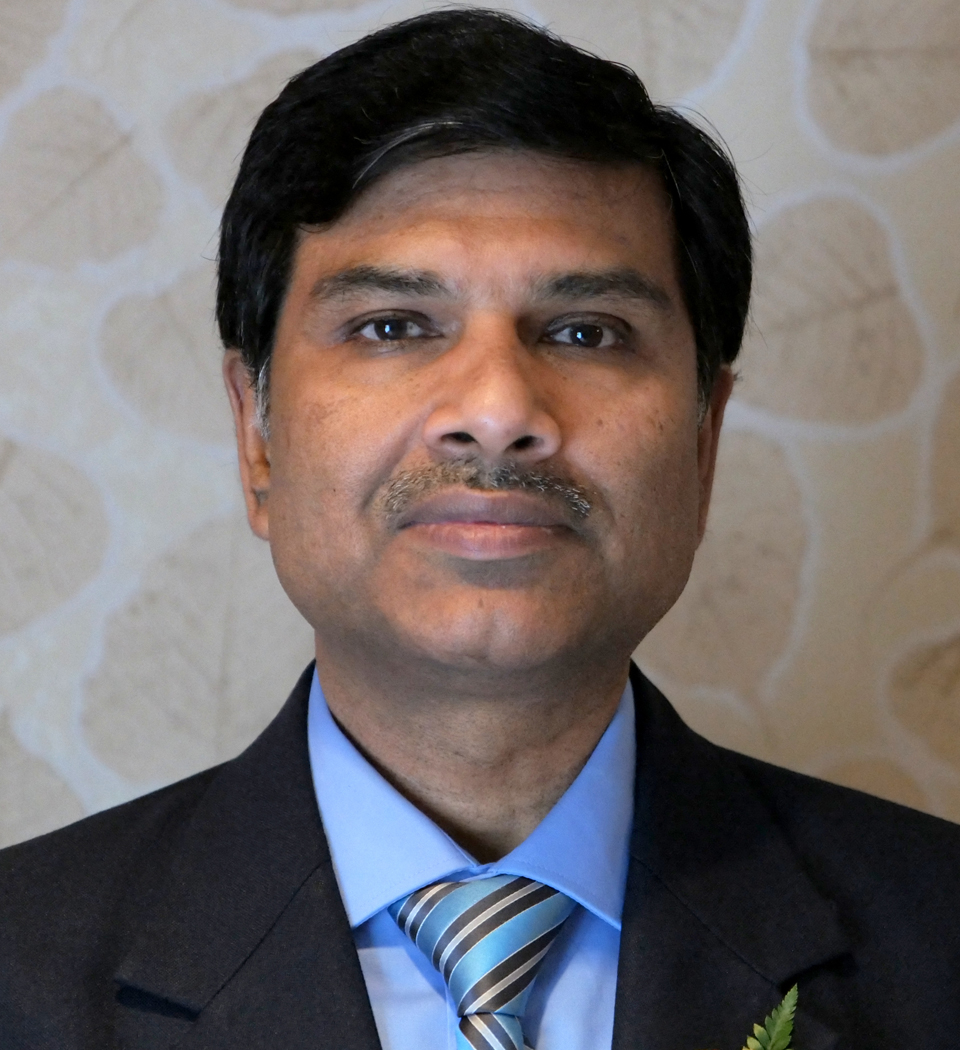
Dr. Poddar has significantly shaped the scientific and engineering landscape with over 350 published papers, six technical books/chapters, and more than four dozen patents. He has mentored numerous Ph.D. students globally and served as editor for several technical journals, while actively contributing to scientific committees and professional societies. Dr. Poddar currently holds several key leadership roles in IEEE, including: Chair, IEEE AP-S Global Chapter Activity Committee; Vice Chair, IEEE AP-S COPE; Chair, IEEE North Jersey Section Awards & Nominations Committee; Member, IEEE MTT-S and AP-S SIGHT Committee. Under his leadership, over 200 IEEE chapters have been established worldwide, enhancing collaboration and community engagement. He is also actively involved in humanitarian initiatives through IEEE SIGHT, IEEE Smart Village, and projects addressing global challenges such as climate change.
Email:
Address:New York, United States
Dr. Victor Lawrence
IEEE Panel Session: Emerging Humanitarian Engineering Technologies
The Humanitarian Projects, supported by the IEEE North Jersey Section AP/MTT Chapter, IEEE AP-S SIGHT, and IEEE AP-S COPE, are initiatives to foster multidisciplinary technological innovation among students and early-career professionals. These projects provide financial support and structured mentorship to teams developing solutions that align with IEEE's mission of "advancing technology for humanity." Emphasis is placed on applications that incorporate state-of-the-art antenna and wireless technologies, including but not limited to artificial intelligence (AI), machine learning (ML), virtual reality (VR), and other emergent technologies. A particular focus is directed toward deploying high-speed wireless networks, critical for next-generation mobile communication systems. These systems aim to achieve enhanced data throughput, minimized latency, and robust connectivity.
Biography:
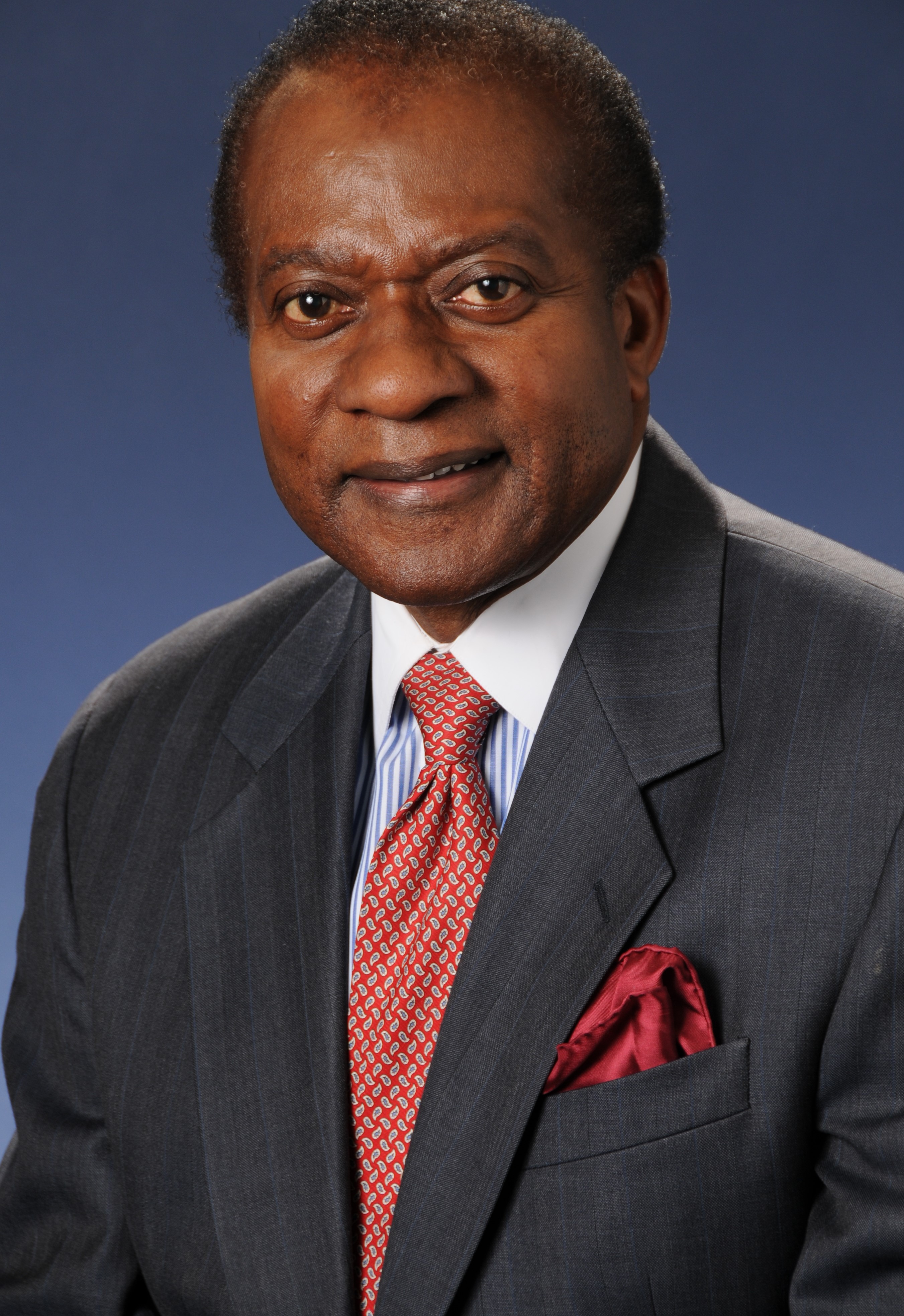
Lawrence began his influential career at Bell Laboratories, becoming Vice President of Advanced Technologies. At Bell Labs, he led groundbreaking developments in modem design, digital subscriber line (DSL) technology, asynchronous transfer mode (ATM), IP switching, and digital audio/video systems. These innovations dramatically increased data transmission's speed, security, and reliability, laying the groundwork for modern Internet, broadband, and mobile communication networks.
One of his most pivotal achievements was proving the technical feasibility of full-duplex data modems over global networks. This breakthrough became the foundation for key international telecommunications standards, democratizing access to low-cost, high-speed Internet during the early 1990s and playing a crucial role in shaping the early Internet era.
Lawrence also made transformative advances in digital video and secure communications. He led the development of HDTV and video codec technologies now embedded in consumer electronics worldwide—from TVs and smartphones to laptops. His teams engineered high-speed modems and fax chipsets that became integral to secure U.S. government communication systems, including those used by the President and senior military leaders.
A passionate advocate for global connectivity, Lawrence has worked tirelessly since 1995 to expand high-speed Internet access across Africa. His leadership in deploying submarine fiber optic cables along the continent’s coasts has significantly enhanced digital infrastructure, advancing education, healthcare, commerce, and innovation in numerous African nations.
Currently serving as a Senior Research Scientist at Stevens Institute of Technology, Lawrence remains active in mentoring the next generation of engineers and driving global technology initiatives. His dedication to innovation and equity in tech inspires researchers and policymakers alike.
His accolades are both numerous and prestigious. In 2024, he received the National Medal of Technology and Innovation from President Joe Biden—America’s highest honor for technological achievement. The R&D Council of New Jersey also awarded him the 2023 Science & Technology Medal. Lawrence is a member of the National Academy of Engineering, a Charter Fellow of the National Academy of Inventors, a Fellow of both IEEE and AT&T Bell Labs, a recipient of a Primetime Emmy Award, and an inductee into the National Inventors Hall of Fame.
Dr. Lawrence holds over 50 patents, has authored over 100 technical papers, and has co-authored five books. He earned his B.Sc., D.I.C., and Ph.D. in Electrical Engineering from the University of London’s Imperial College.
Victor B. Lawrence’s extraordinary career is defined by relentless innovation, transformative impact, and a vision of a world connected by technology. From revolutionizing how people communicate to empowering communities across Africa, his legacy is one of global progress and enduring inspiration.
Address:New Jersey, New York, United States
Dr. Jawad Siddiqui of Royal Military College of Canada, Queens University
IEEE Panel Session: AP-S SIGHT Initiatives in Emerging Humanitarian Engineering Technologies
The Humantrain Projects, supported by the IEEE North Jersey Section AP/MTT Chapter, IEEE AP-S SIGHT, and IEEE AP-S COPE, are initiatives to foster multidisciplinary technological innovation among students and early-career professionals. These projects provide financial support and structured mentorship to teams developing solutions that align with IEEE's mission of "advancing technology for humanity." Emphasis is placed on applications that incorporate state-of-the-art antenna and wireless technologies, including but not limited to artificial intelligence (AI), machine learning (ML), virtual reality (VR), and other emergent technologies. A particular focus is directed toward deploying high-speed wireless networks, critical for next-generation mobile communication systems. These systems aim to achieve enhanced data throughput, minimized latency, and robust connectivity.
Biography:
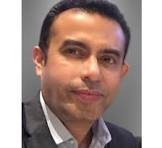
He is a Senior Research Associate at the Royal Military College of Canada. He is also an Adjunct Assistant Professor in Queen's University, Canada's Electrical and Computer Engineering (ECE) Department. Previously, he was an Associate Professor at the Institute of Radio Physics and Electronics, University of Calcutta, India. He has also been a Visiting Professor in the ECE
Department at the University of Alberta, Edmonton.
Additionally, he has worked as a research associate in the ECE Department at Queen’s University and as a postdoctoral fellow and research assistant at the Royal Military College of Canada. He has been actively involved in several research projects funded by the Department of National Defence (DND) and Defence Research and Development Canada (DRDC) in Canada.
He is the Chair of the AP-S SIGHT, a standing committee of the IEEE Antennas and Propagation Society (AP-S). He has served on several other committees within the Society. He has also been a member of the Meetings and Symposia Committee of the IEEE Microwave Theory and Technology Society (MTT-S) and served as the MTT-S representative on the IEEE Technical Activities Board (CPC) in 2021.
He received the 2022 Institution of Electronics and Telecommunication Engineers (IETE) S.N. Mitra Memorial Award for his contributions and leadership in radio broadcast science and technology. He also received the 2015 IEEE AP-S Ulrich L. Rohde Humanitarian Technical Field Project Award for excellence in the humanitarian use of technology. He is a Senior Member of IEEE and a member of IEEE Eta Kappa Nu (HKN). He has authored 150+ publications in peer-reviewed journals and conferences.
Email:
Address:Royal Military College of Canada, Queens University, , New York, United States
Katherine Grace August, PhD (Kit)
IEEE Panel Session: Emerging Humanitarian Engineering Technologies
Artificial Intelligence (AI), Machine Learning (ML), and Virtual Reality (VR) have the potential to transform humanitarian technology significantly. These advanced technologies can offer innovative solutions to urgent global challenges, including disaster response, healthcare access, education equity, and social justice. They can enhance humanitarian efforts by making them more data-driven and impactful. For example, AI-powered drones with advanced sensors and algorithms can significantly improve search and rescue operations during natural disasters, reaching remote areas where traditional methods may struggle. Additionally, blockchain technology can establish a transparent and tamper-proof system for aid distribution, ensuring that resources reach those in need without corruption or inefficiency. Furthermore, immersive VR experiences can revolutionize education by providing interactive training simulations that prepare individuals for real-world scenarios, helping them develop critical skills for crises. Together, these cutting-edge innovations have the potential to reshape the landscape of humanitarian aid, creating a more responsive and practical framework for addressing the needs of vulnerable communities worldwide.
Biography:
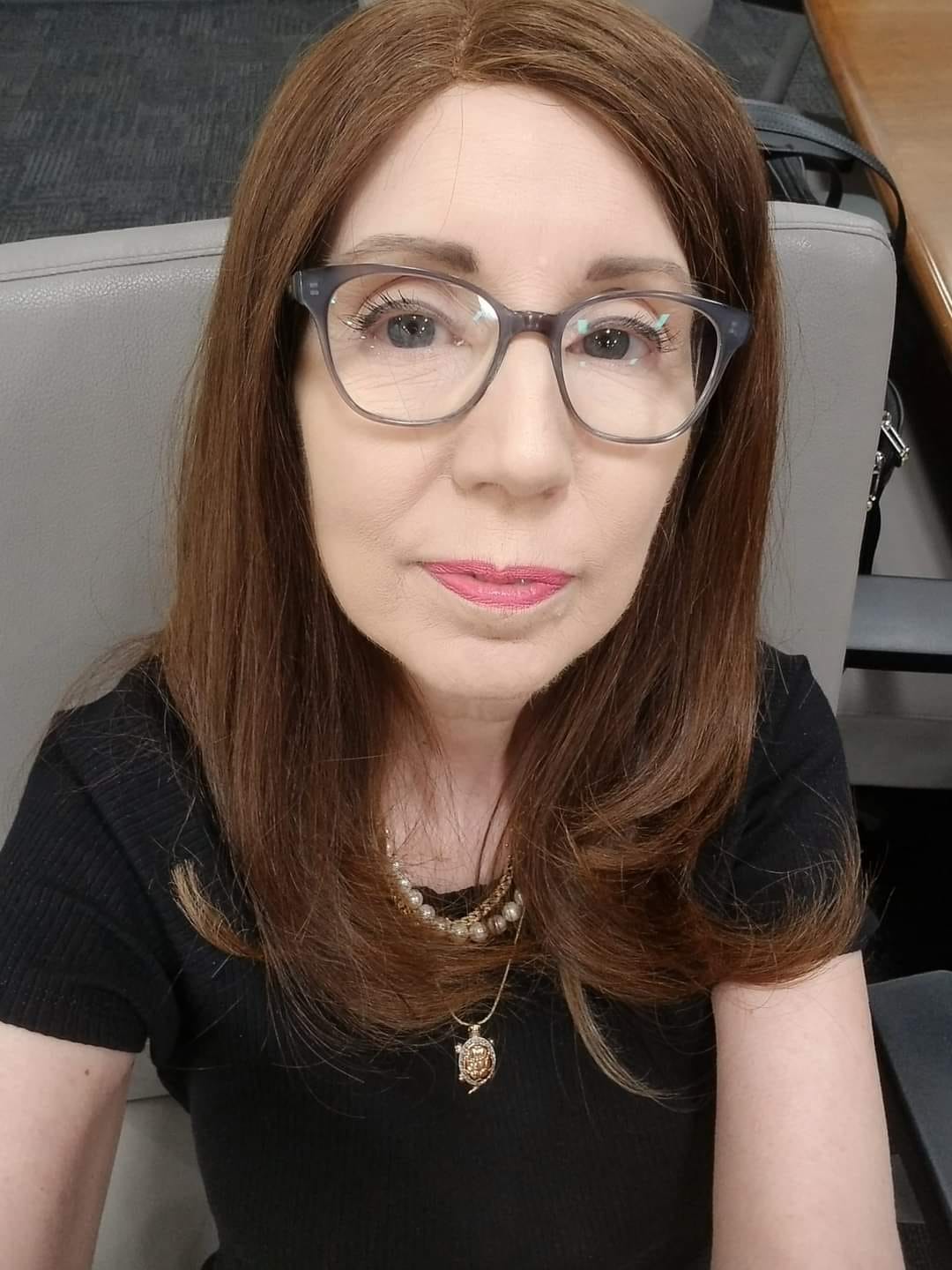
Google Scholar Link: https://scholar.google.com/citations?user=v_azvz4AAAAJ&hl=en
ACTIVE IEEE SOCIETIES: IEEE Antennas and Propagation Society Membership, IEEE Communications Society Membership,
IEEE Computational Intelligence Society Membership, IEEE Computer Society Membership, IEEE Education Society Membership
IEEE Engineering in Medicine and Biology Society Membership, IEEE Robotics and Automation Society Membership
IEEE Signal Processing Society Membership, IEEE Society on Social Implications of Technology Membership
IEEE Vehicular Technology Society Membership, IEEE Women in Engineering Membership, IEEE Standards Association Individual Membership
IEEE Biometrics Council, IEEE Sensors Council, IEEE Systems Council, Digital Reality Community, IEEE SIGHT
Email:
Address:New York, United States
Dr. Emre Tokgoz
The Interdisciplinary World of Academia and Industry Using Emerging Technologies Addressing Humanitarian Technology
The Humanitarian Projects, supported by the IEEE North Jersey Section AP/MTT Chapter, IEEE AP-S SIGHT, and IEEE AP-S COPE, are initiatives to foster multidisciplinary technological innovation among students and early-career professionals. These projects provide financial support and structured mentorship to teams developing solutions that align with IEEE's mission of "advancing technology for humanity." Emphasis is placed on applications that incorporate state-of-the-art antenna and wireless technologies, including but not limited to artificial intelligence (AI), machine learning (ML), virtual reality (VR), and other emergent technologies. A particular focus is directed toward deploying high-speed wireless networks, critical for next-generation mobile communication systems. These systems aim to achieve enhanced data throughput, minimized latency, and robust connectivity.
Biography:
Dr. Emre Tokgoz is a professor of computer security at the State University of New York’s Farmingdale campus and the CTO of Anubis Engines Corporate. He has 14 years of professorship experience teaching and conducting research as a mathematics, computer science, industrial engineering, and computer security professor. He is an IEEE member and IISE’s Central CT Professional Chapter president. Tokgoz directed an ABET-accredited Industrial Engineering Bachelor of Science degree program as a tenured faculty member in the School of Computing and Engineering of Quinnipiac University in Connecticut, where he served between 2014 and 2023. Tokgoz has also been actively working on various research topics with more than 100 peer-reviewed publications related to rocket engine advancement and development, network security, cryptography, systems design and improvement, STEM education, biomedical engineering, supply chain, and data science. He has five published books with Springer and more than 85 peer-reviewed articles and book chapters. His project experience in both industry and academia includes manufacturing, healthcare, aerospace, and systems design.
Address:United States

